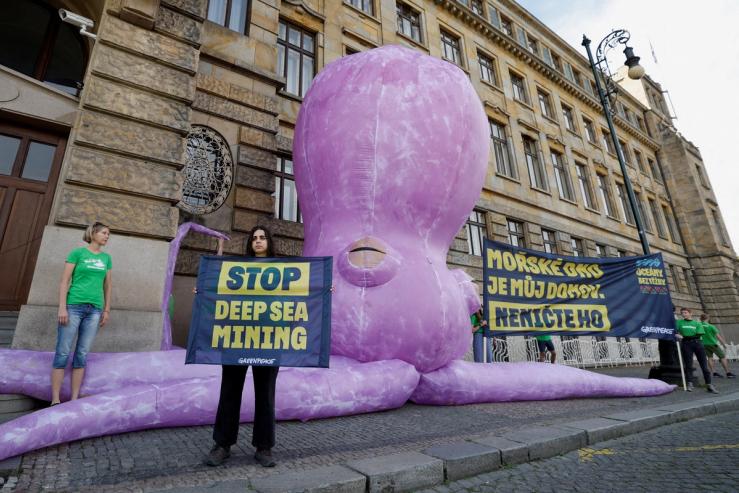The News
A regulatory body is beginning three weeks of meetings on deep sea mining in Jamaica Monday, as countries scramble to address a shortage of metals critical for powering batteries.
The meeting, hosted by International Seabed Authority (ISA), a U.N.-affiliated body, follows a request by Nauru to mine commercially.
We’ve curated insightful analysis on the international furor over deep sea mining regulations and what it could mean for the oceans’ ecosystem.
Insights
- Deep below the ocean’s surface is a treasure trove of critical metals. Cobalt, nickel, copper, and manganese — all crucial to the development of electric vehicles and solar panels — are trapped in nodules on the sea bed. Countries desperately want to seize these resources, but environmental groups fear devastation to a little-studied and otherwise pristine ecosystem if mining begins without regulation. — Foreign Policy
- In the mineral-rich Clarion-Clipperton Zone (CCZ), scientists recently found more than 5,000 previously undiscovered species. Researchers exploring the 1.7 million square miles between Mexico and Hawaii found just six animals in the zone which were found elsewhere. Dr. Adrian Glover, a deep-sea biologist involved in documenting the CCZ’s biodiversity, said that scientists shouldn’t decide if deep sea mining should be approved, but to work with companies to limit their “impact upon the natural world.” He said that it was a “very positive” that there would regulations in place before mining, unlike in oil and gas where “the regulations came later.” — The Guardian
- As the regulatory deadline has passed, dozens of countries are calling for a moratorium on mining, citing concerns over environmental damage. Germany and Switzerland are supporting the moratorium, and France is calling for a full ban on any deep sea mining endeavors. Norway, meanwhile, has opened its coastal waters to companies looking for polymetallic nodules. — Reuters
Know More
A two-year ban on the deep sea mining expired recently, and countries have so far failed to come to an agreement on the regulations which would govern the practice. Representatives from 168 ISA member states are set to gather at the conference.
Environmentalists and some scientists have called for a moratorium on deep sea mining given the level of environmental damage which could follow a race for supplies.
Metals like copper and cobalt, crucial for developing the batteries which would power a transition to greener energy, are in short supply.
The required metals can be mined or recycled, but estimates suggest that recycling on its own could not address the expected jump in demand as the world continues a push towards renewable energy sources.


